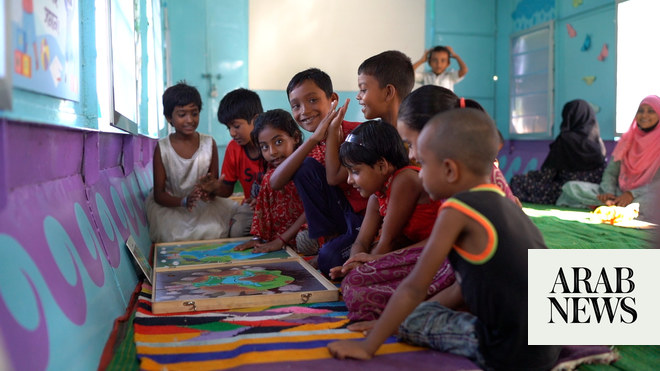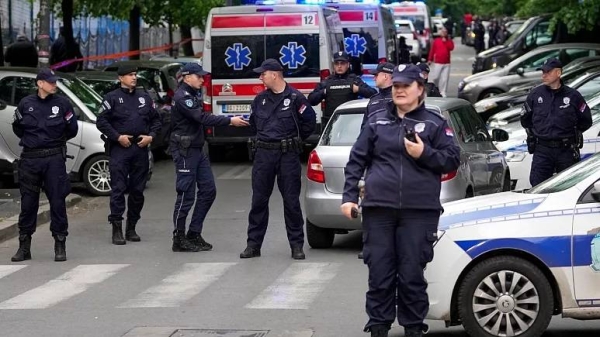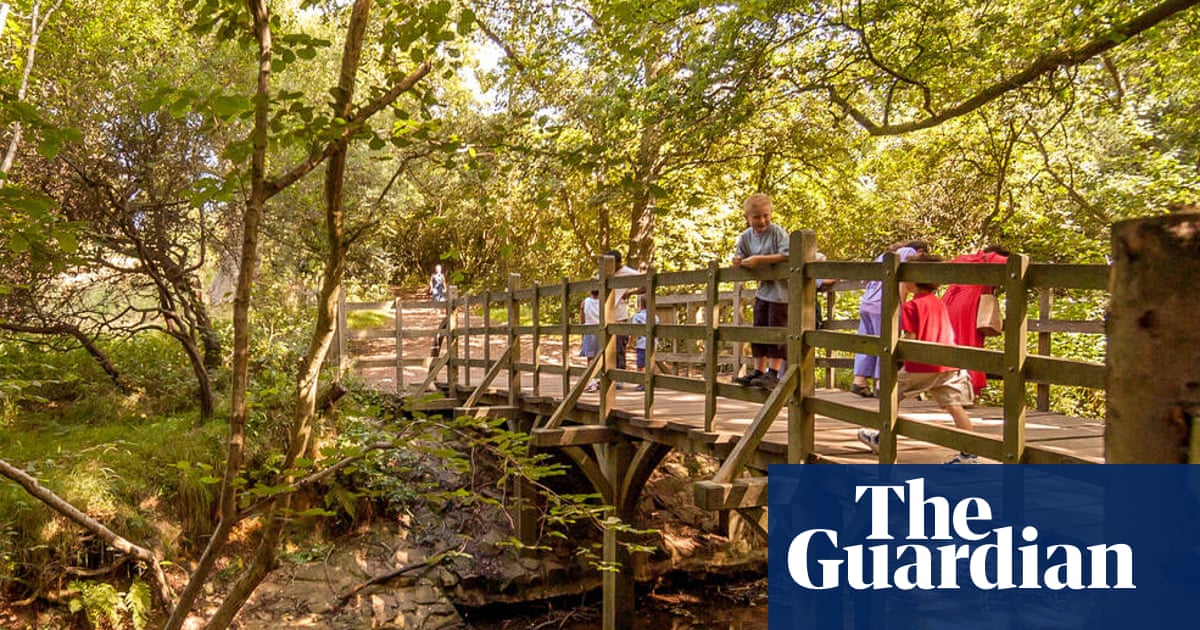
Floating classrooms operated by country’s largest development organization
Fleet of 3 boats offer unique learning experience as they drop anchor in riverine towns
Dhaka: When Abir Chandra Das boarded a floating boat instead of going to the classroom on a Monday morning, it was a completely new experience, one in which the 11-year-old grasped ethics, geometry, and astronomy simultaneously as he played.
Three boats — pink, blue, and violet — anchored on the bank of the Dakatia River near his home in Chandpur district, 110 kilometers from Dhaka, and each of them had something else to offer, from mathematics through science to values.
Launched in September by BRAC, the largest development organization based in Bangladesh, the schools made a stop in Chandpur last month on their way from the northeastern district of Sunamganj to the coastal areas of Bhola in the country’s south.
“I enjoyed different elements in all three boats, especially the games and books in the values boat attracted me a lot,” Das told Arab News.
“Apart from that, I learned the triangle, square, and so on in geometry from the mathematics boat, and got some knowledge on the cosmos and microscopes from the science boat.”
Wherever they arrive, the boats usually anchor for seven to 10 days and are open from morning until afternoon, offering children the experience of play-based learning.
They stop near primary and secondary schools with which BRAC’s teams had been in touch in advance, taking onboard young volunteer teachers from local communities to make contact with children easier.
“All of the activities, materials, and contents in these three boats have been designed in a way so that children will have fun, will enjoy learning, will be curious about learning and through that hopefully be inspired to continue their education,” BRAC education director, Safi Rahman Khan, told Arab News.
“Many of these children, they may never have had the opportunity to experience such an experiential learning space. So, in that sense, we are seeing a lot of spontaneity, a lot of curiosity, many, many visitors. A lot of children are coming, a lot of guardians are coming, and teachers.”
The boats have special ramps so that children and people with disabilities can easily access them.
“We want to ensure that these boats are a more inclusive and open space for learning for all students, for all visitors, guardians, teachers, professionals, officials, and for children and visitors who may have difficulty getting onto a boat,” Khan said.
Ipshita De Chowdhury, 10, who played on the boats when they anchored in Chandpur, told Arab News that she was “very proud” of what she had learned onboard the values boat.
“It taught me the importance of values for people,” she said. “I enjoyed the elements of the other two boats also, but the values boat attracted me more.”
The things children learn in the colorful boats are also taught at normal schools too, but the way they are introduced is different.
“The difference is we have brought them into a format which is all hands-on activities. It’s not based on just reading from a book,” Khan added. “We are seeing a lot of spontaneity, a lot of curiosity.”
All the experiments, puzzles, and games they find on board, children can solve on their own or in groups. Only if they have difficulties will a teacher come to guide them.
As children flock to the boats wherever they moor and their reactions are never short of enthusiasm, BRAC is open to sharing its methods of teaching with schools and education departments.
“We hope they will be inspired, and the teachers will be inspired, and the parents will be inspired, so that they can make learning fun to encourage the children to explore, encourage the children to try and solve various types of problems, various types of activities, on their own rather than depending on maybe a rote system of learning or a system of learning which is more passive,” Khan said.
“This is a journey that we have started and it’s a very small initiative. We hope that others will get inspired.”












